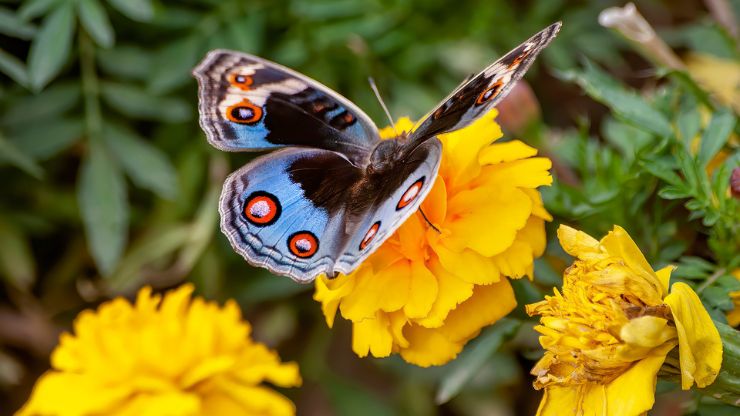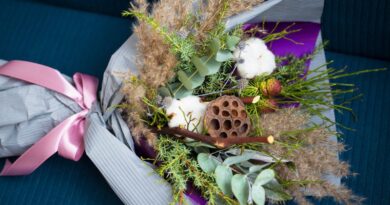Fly-Repellent Plants to Keep Your Home Bug-Free – Maintaining a bug-free home is not only essential for your peace of mind but also for your health and overall well-being. Flies, in particular, can be a persistent nuisance, and traditional methods of pest control may involve chemicals that you’d rather avoid. Fortunately, there’s a natural and eco-friendly solution at your disposal: fly-repellent plants.
In this guide, we’ll explore a selection of common plants known for their remarkable ability to deter flies. These plants not only serve as an attractive addition to your home but also act as a natural barrier against these pesky insects. By cultivating and strategically placing these plants, you can create a bug-free environment that’s both aesthetically pleasing and environmentally friendly.
Discover the power of nature as we delve into the world of fly-repellent plants and learn how to incorporate them into your living spaces, making your home a more pleasant and bug-free place to be. Say goodbye to chemical insect repellents and welcome a greener, healthier alternative.
Importance of keeping your home bug-free
Keeping your home bug-free is important for several reasons:
- Health and Hygiene: Bugs, especially flies, cockroaches, and mosquitoes, can carry and transmit diseases. Preventing their presence in your home helps safeguard your family’s health and reduces the risk of infections and illnesses.
- Food Safety: Bugs can contaminate your food and food preparation areas. Keeping them out of your home ensures the safety and quality of the food you consume.
- Comfort and Well-Being: Bug infestations can be a constant source of annoyance and discomfort. The presence of bugs can disrupt your daily activities, sleep, and overall well-being.
- Property Damage: Some bugs, such as termites, can cause significant structural damage to your home, leading to costly repairs. Others, like carpet beetles and silverfish, can damage your belongings.
- Allergies and Asthma: Bugs like dust mites, cockroaches, and certain types of ants can trigger allergies and exacerbate asthma symptoms in susceptible individuals. Maintaining a bug-free home can help reduce these health risks.
- Peace of Mind: A bug-free home contributes to a sense of cleanliness, order, and peace. It allows you to relax and enjoy your living space without the stress and frustration associated with pest infestations.
- Sustainability and Environmental Concerns: Reducing the need for chemical pesticides and insecticides by preventing bug infestations aligns with environmentally conscious practices. It’s a more sustainable and eco-friendly approach to pest control.
Also, Read – Money-Attracting Plants for Your Home and Office
Fly-Repellent Plants to Keep Your Home Bug-Free
Basil
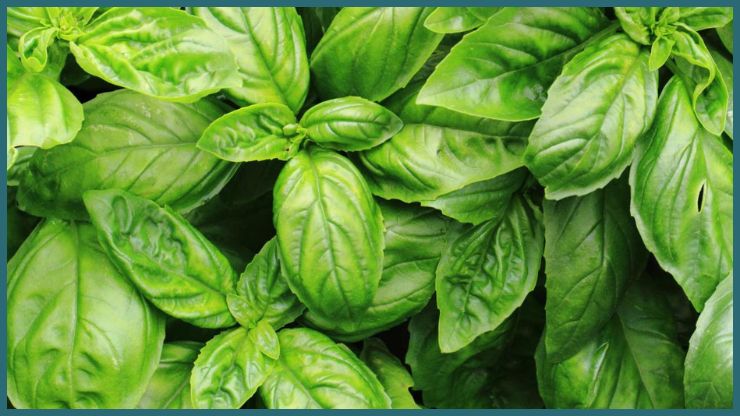
Basil (Ocimum basilicum) is a versatile herb that not only adds flavor to your culinary creations but also helps in fly deterrence. Its strong, aromatic scent is unappealing to flies, making it a natural insect repellent.
Whether planted in your garden or in pots on your windowsill, basil is an attractive and functional addition to your home. Enjoy the benefits of a bug-free environment while enhancing your cooking with this easy-to-grow herb.
Mint
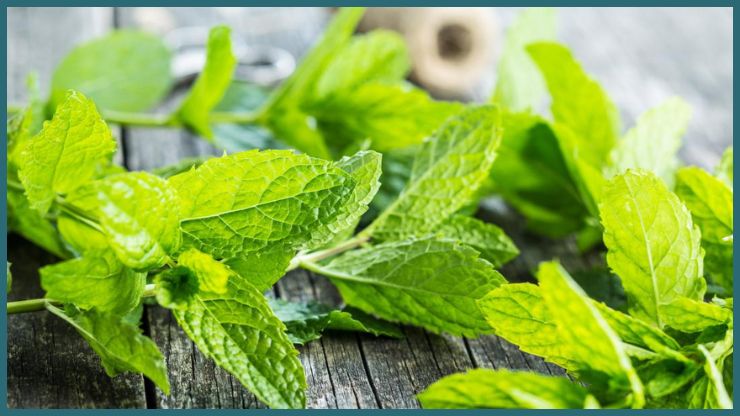
Mint, encompassing varieties like peppermint and spearmint, is a fragrant herb renowned for its fly-repelling qualities. Its robust aroma is highly effective at discouraging flies from invading your space. Mint is a low-maintenance plant that can be grown in pots or directly in your garden, providing both a refreshing scent and practical insect control.
Whether you’re sipping on mint-infused beverages or using it in your culinary endeavors, this herb not only enhances your sensory experience but also helps maintain a fly-free environment in and around your home.
Rosemary
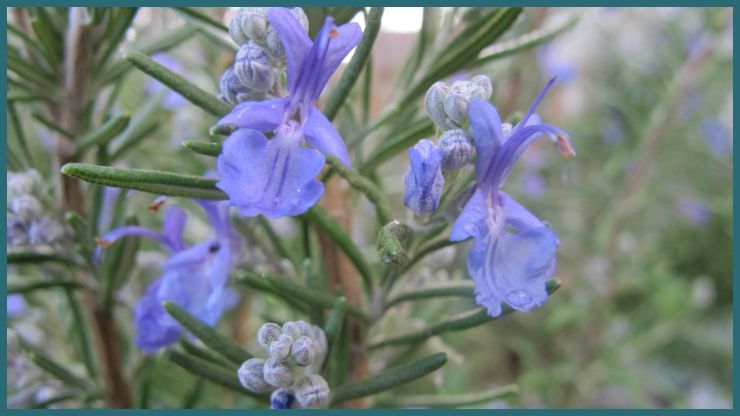
Rosemary (Rosmarinus officinalis) is a versatile and aromatic herb with the added benefit of repelling flies. Its fragrant foliage emits a strong scent that flies find unappealing, making it a valuable addition to your garden or indoor herb collection. Rosemary is easy to grow and can thrive in various climates.
Whether you’re using it as a flavorful addition to your dishes or simply enjoying its natural fly-repelling properties, rosemary is a functional and decorative herb. Enhance your cooking and keep flies at bay with this resilient and multi-purpose plant.
Marigold
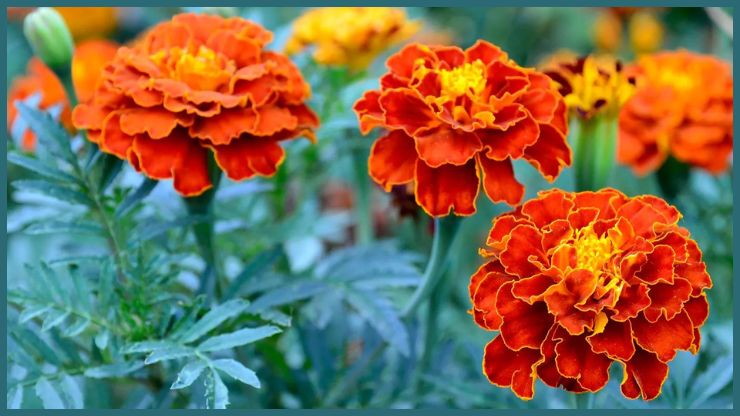
Marigolds, with their vibrant blooms, are more than just eye-catching garden flowers – they also possess natural insect-repelling properties, including the ability to deter flies. These colorful flowers contain compounds that flies find unappealing. Planting marigolds in your garden or placing them near windows and doors can help keep flies and other pests away.
Their low-maintenance nature and dazzling appearance make marigolds a dual-purpose addition to your outdoor spaces. Enjoy the beauty of marigolds while benefiting from their bug-repelling qualities, creating a more pleasant and pest-free environment around your home.
Citronella
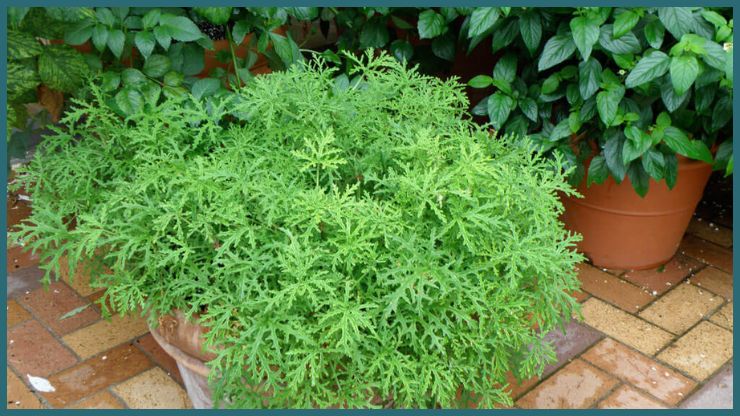
Citronella, derived from Cymbopogon nardus, is renowned for its natural mosquito-repelling properties but is also effective in deterring flies. This aromatic grass emits a distinctive citrusy scent that flies find unpleasant. You can cultivate citronella plants in pots or use citronella candles and oil to enhance your outdoor ambiance and keep flies at bay.
Whether you’re hosting a garden party or simply enjoying a quiet evening on your patio, citronella’s dual role as an insect repellent and mood enhancer makes it a valuable addition to your outdoor living spaces, contributing to a more enjoyable, bug-free experience.
Chrysanthemum
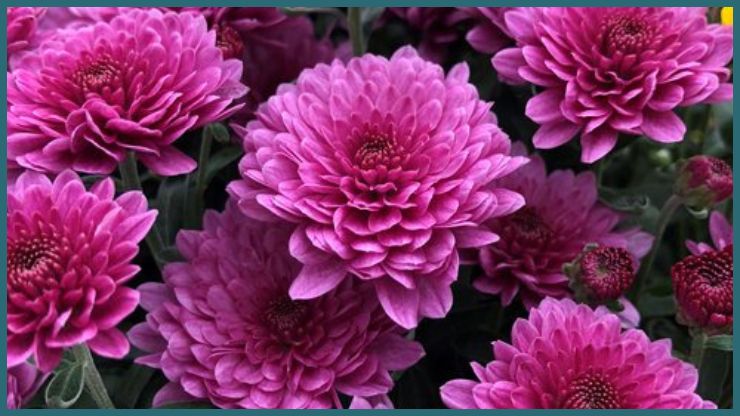
Chrysanthemums, often referred to as mums, are not just exquisite blooms; they also contain natural insect-repelling compounds. The pyrethrin found in these flowers is a key ingredient in many commercial bug sprays. By planting chrysanthemums in your garden or placing them strategically around your home, you can deter flies and other insects.
These resilient and colorful flowers provide a dual purpose, adding aesthetic charm to your outdoor spaces while contributing to a more bug-resistant environment. Chrysanthemums are a beautiful and practical choice for those looking to enjoy both the visual appeal and the pest-repelling benefits of their gardens and landscapes.
Lemon balm
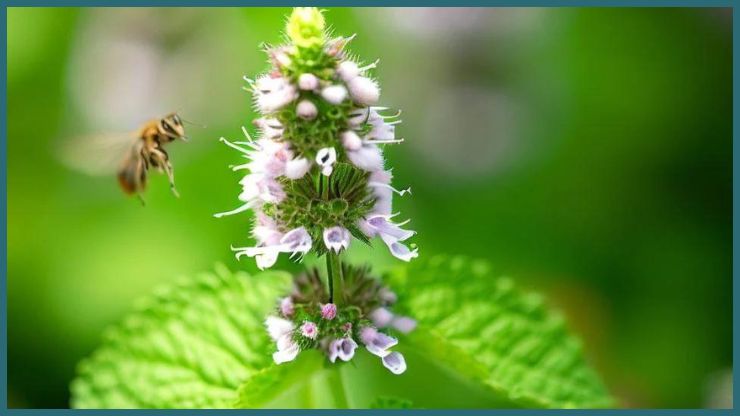
Lemon balm (Melissa officinalis) is a fragrant herb known for its lemony scent and natural fly-repelling properties. This member of the mint family can be grown in pots or gardens, making it a versatile choice for fly deterrence. The citrus-like aroma emitted by lemon balm is disliked by flies, helping to keep them at bay.
Whether you’re using it in teas, culinary dishes, or simply enjoying the pleasant fragrance, lemon balm serves a dual purpose by enhancing your sensory experience and contributing to a more fly-free environment. Its ease of cultivation and appealing aroma make it an excellent addition to your garden or herb collection.
Lemongrass
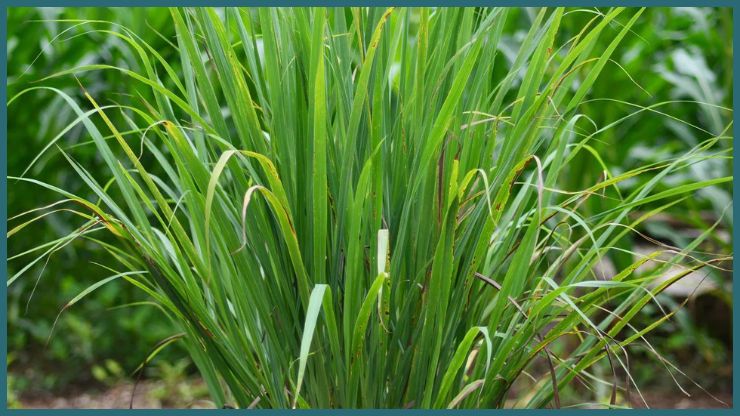
Lemongrass (Cymbopogon citratus) is not just a flavorful addition to your culinary dishes; it’s also a natural insect repellent. This fragrant grass emits a refreshing lemony scent that deters flies and other insects. Whether planted in your garden or potted for outdoor seating areas, lemongrass contributes to a more pleasant and bug-free environment.
Its versatility extends from culinary uses to natural pest control, making it a valuable addition to your outdoor spaces. Enjoy the lemony aroma and the practical benefits of keeping flies at bay while relishing the flavors it can bring to your dishes and beverages.
Tansy
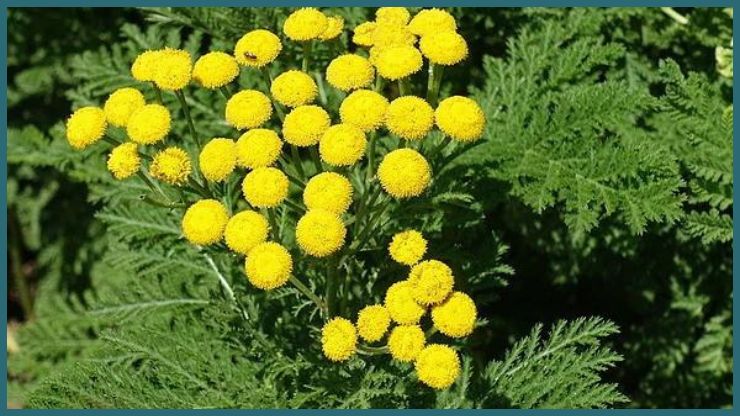
Tansy (Tanacetum vulgare) is a herbaceous plant known for its potent fly-repelling properties. However, it should be used with caution as it can be invasive in some regions. Tansy emits a strong, bitter odor that flies find repulsive, making it an effective natural deterrent. Planting tansy in your garden or near windows and doors can help keep flies away.
Due to its invasive nature, it’s advisable to grow tansy in contained areas, such as pots or designated garden beds, to prevent it from spreading uncontrollably. While an effective fly repellent, responsible management is essential to harness its benefits without causing ecological disturbances.
Sage
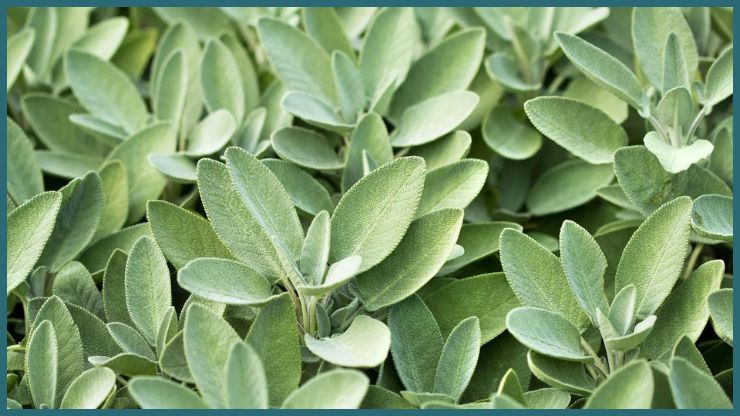
Sage (Salvia officinalis) is a fragrant herb with potent fly-repelling properties. Its aromatic scent is disliked by flies, making it a natural insect deterrent. Whether grown in your garden or in pots, sage is an attractive and practical addition to your outdoor living spaces. It not only enhances your culinary creations but also contributes to a more fly-free environment.
With its resilience and ease of cultivation, sage can be a valuable asset for those seeking both aromatic and practical benefits in their gardens. Enjoy its culinary versatility while keeping flies at bay, creating a more pleasant outdoor atmosphere.
Catnip
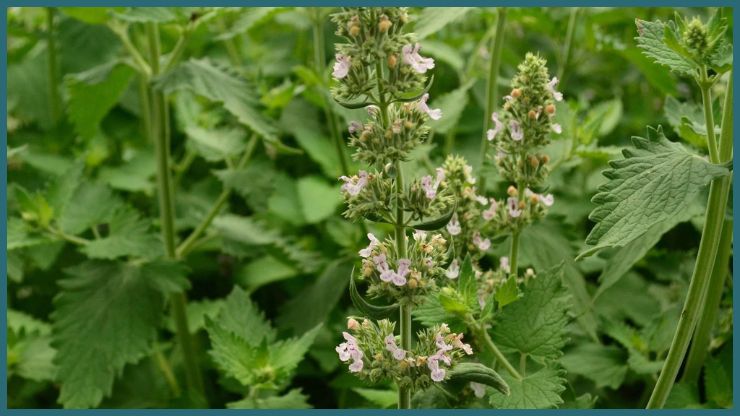
Catnip (Nepeta cataria) is a versatile plant with a unique dual purpose—it is a favorite of cats and an effective fly and mosquito repellent. While cats are attracted to the scent, which can induce playful behavior, the same odor repels flies and mosquitoes.
You can grow catnip in your garden or in pots on your patio. Its natural insect-repelling qualities make it a valuable addition to outdoor spaces where you want to enjoy the benefits of fewer flies and mosquitoes. Catnip provides an all-natural and multi-functional solution to both pest control and feline entertainment, making it a popular choice for many garden enthusiasts and pet owners.
Lavender

Lavender (Lavandula angustifolia) is a fragrant and visually pleasing herb with remarkable fly-repelling properties. Its sweet and calming aroma is highly effective at deterring flies. Whether planted in your garden or kept in pots indoors, lavender serves as a natural and aesthetically pleasing way to help keep flies at bay.
Its soothing scent not only adds tranquility to your environment but also contributes to a more fly-free space. Lavender is a low-maintenance, versatile herb that enhances your sensory experience while offering a practical solution to insect control. Enjoy the beauty and functionality of lavender as it aids in maintaining a serene and bug-free atmosphere in and around your home.
Conclusion
In conclusion, a bug-free home is vital for health, safety, and peace of mind. It ensures food safety, prevents property damage, and minimizes the risk of allergies and diseases. By prioritizing bug control through natural and eco-friendly methods, you can create a healthier, more comfortable living space.
Embracing a bug-free environment not only enhances your well-being but also contributes to a sustainable and environmentally responsible approach to pest management, fostering a cleaner and safer home for you and your loved ones.
FAQs
Fly-repellent plants are specific plant varieties known for their natural ability to deter flies and other insects due to their aroma, chemical compounds, or physical characteristics.
Some common fly-repellent plants include basil, lavender, mint, rosemary, and marigold. These plants emit scents or compounds that flies find unpleasant.
Fly-repellent plants emit fragrances or compounds that interfere with a fly’s sensory perception or overwhelm their attraction to your home, making it less appealing for them to enter.

